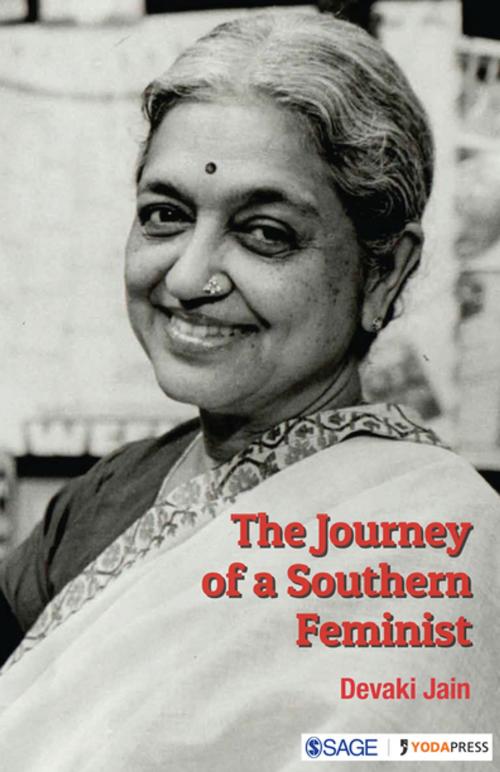The Journey of a Southern Feminist
Nonfiction, Social & Cultural Studies, Social Science, Gender Studies| Author: | Devaki Jain | ISBN: | 9789352806225 |
| Publisher: | SAGE Publications | Publication: | March 19, 2018 |
| Imprint: | Sage Publications Pvt. Ltd | Language: | English |
| Author: | Devaki Jain |
| ISBN: | 9789352806225 |
| Publisher: | SAGE Publications |
| Publication: | March 19, 2018 |
| Imprint: | Sage Publications Pvt. Ltd |
| Language: | English |
This book is a collection of Devaki Jain’s writings and lectures related to the women’s movement in India and interventions in policy and fact base drawn from that experience. A journey of over six decades, it presents important interventions in the design of national and international development policy.
Beginning with a fascinating account of Jain’s own evolution into a feminist, each chapter starts with an introductory note locating it in her own professional journey. The initial chapters of the book underline an important fact—better understood now but a radical intervention when Jain wrote it—that women’s reasoning and the ideas that emerge from their lived experience need to be converted into macro frameworks of development. The later chapters champion the role of local power, in economic planning led by women, in healing inequalities. They also pose a feminist challenge to inherited knowledge usually created and argued for by men. In her most recent work, Jain reiterates that poor women’s struggles, strategies and needs should inform development strategy at the local level. At a global level, she talks of how women and their networks in the South are offering ideas on rethinking development.
This book is a collection of Devaki Jain’s writings and lectures related to the women’s movement in India and interventions in policy and fact base drawn from that experience. A journey of over six decades, it presents important interventions in the design of national and international development policy.
Beginning with a fascinating account of Jain’s own evolution into a feminist, each chapter starts with an introductory note locating it in her own professional journey. The initial chapters of the book underline an important fact—better understood now but a radical intervention when Jain wrote it—that women’s reasoning and the ideas that emerge from their lived experience need to be converted into macro frameworks of development. The later chapters champion the role of local power, in economic planning led by women, in healing inequalities. They also pose a feminist challenge to inherited knowledge usually created and argued for by men. In her most recent work, Jain reiterates that poor women’s struggles, strategies and needs should inform development strategy at the local level. At a global level, she talks of how women and their networks in the South are offering ideas on rethinking development.















